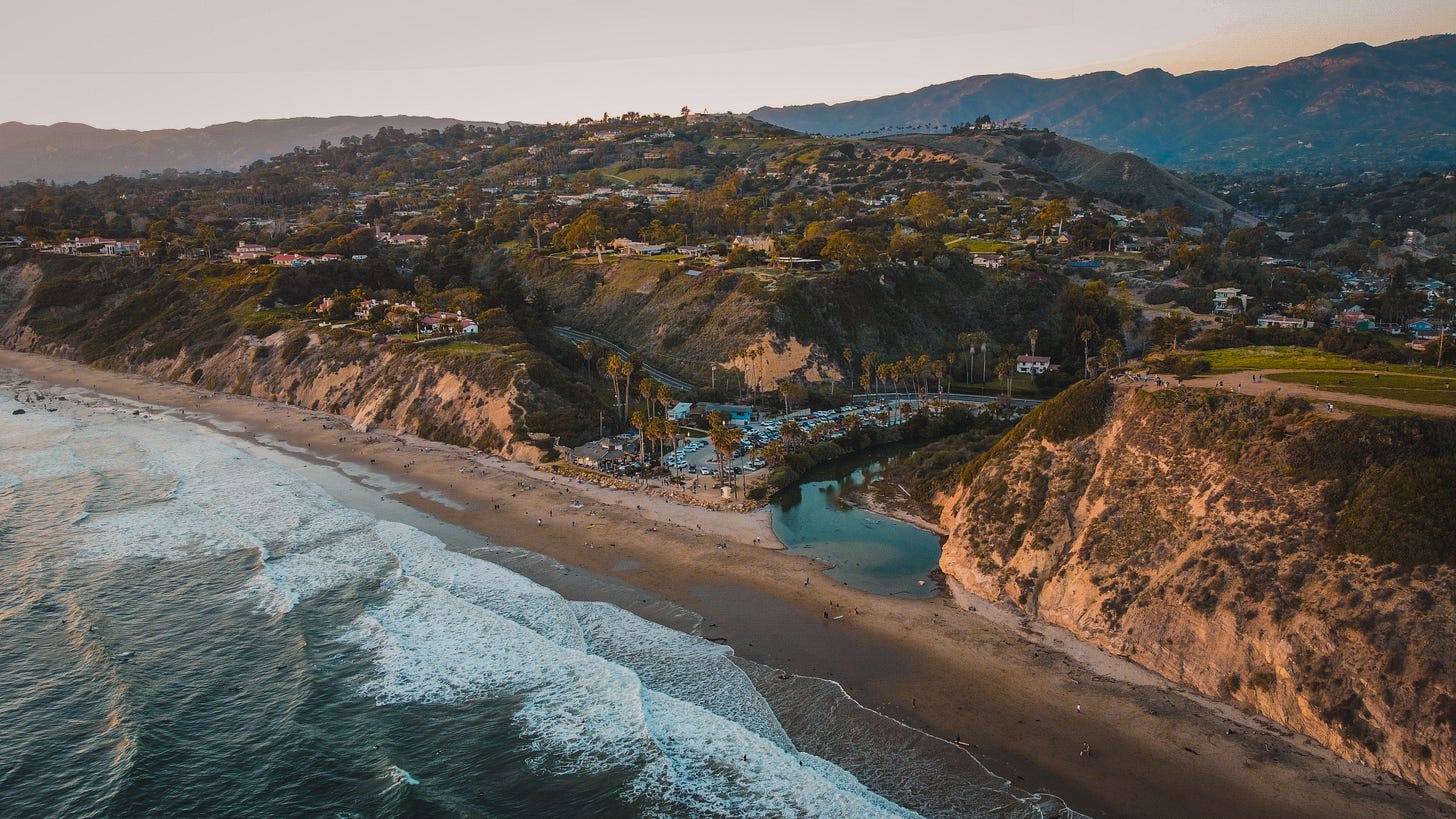CHAPTER 34: A Flicker of Hope
The plane skidded to a sloppy landing at London’s Heathrow Terminal 2 where The Tribune’s UK-based researcher Ian MacAllister met Grace at the curb. As they exited the airport he said, “Sorry we can’t stop for tea. The General’s waiting.”
“The General?” asked Grace.
Ian smiled. “General Agarwal, retired. My grandfather. He has great records on Trinité’s empire; is a royal pain in the arse to ol’ Freddy.”
“Ian,” she said, “thank you for helping. You didn’t have to.”
He shrugged. “I’ve run afoul of management a few times myself. Chase vouched for you and that’s good enough for me.”
Ian weaved through traffic in his Austin Healy and Grace watched industrial parks and then townhouses zip past the window. They passed villages; traversed narrow roads lined with hedgerows. Ian slowed at an old wooden gate posted with a large PRIVATE sign. He turned onto a gravel driveway and parked in front of a stone country house in need of pointing and paint.
The bark of a very large dog issued from inside. Ian waved at a security camera and the heavy front door swung inward. Dark eyes glowed in the wrinkled face of a very old man barely five-and-a-half-feet tall. There was no dog. A recording? thought Grace.
“Ian, my boy!” exclaimed the General, hugging him. “And your American friend, Grace! Please, come in, come in.”
After brief introductions in the foyer, they walked down a hall past a sitting room and an impressive library, through the kitchen and out the back door. They followed a granite path across a wet lawn to a small stone outbuilding filled with garden equipment.
The General flipped open a panel and punched in a code and a wall covered with rakes and shovels swung inward, revealing a steel door. Another code and Grace heard it unbolt from the inside. Ian pulled it open and lights flickered on.
Stairs led down to another steel door requiring another code. Ian hit the power switch and two laptops glowed; an invisible fan whirred. Filing cabinets and shelves stacked with black binders lined the walls.
“Frédéric Laurent Trinité,” said the General. “You want to know all about the unholy Trinity?” He smiled. “You’ve come to the right place.”
<><><><>
Santa Barbara zoned industry and most of the middle class out of town decades ago. The lowest priced house starts at over a million and the very rich—living on inherited trust funds and residuals—mingle uncomfortably with the very poor living on drug sales and disability checks. Overfed tourists and surf bums wander its streets, past updated variations of Spanish Revival and 1920s stucco buildings with red tile roofs and courtyards.
Boyle passed his days at the gym, played golf, swam. When he tired of these pursuits, he visited the library, searched the internet for news on the various fires he’d set. After Jonah told him about Ginnie and Grace, he read articles by and about them, studied their digital images.
After sundown, Boyle strolled the State Street Promenade in an aloha shirt. Arcades with intricately-tiled arches and walls—which once festively offered music, exotic food and jewelry, items sourced from all over the world—were now quiet, the homeless huddling in their dark corners.
He’d called Warren Jonah twice since arriving. On the second call, he asked, “Time for early retirement?”
“No, not yet,” said Jonah. “Patience.”
As the weeks passed, Boyle grew restless. He couldn’t sleep, found it difficult to concentrate. He stopped spending time in the gym and walking; instead, he drank rum alone in his room at the Seaside Inn.
Will the blonde bombshell piece it together, go to the police? he worried. Is Jonah lying? Did he cut a deal to save his hide? Is he working with the police and that reporter while here I am, a fool in a Hawaiian shirt, wasting away in Margaritaville?
Jonah called one evening. “Seamus, your vacation shouldn’t last too much longer,” he said.
“How long?” asked Boyle.
“Not long,” replied Jonah in his silky voice, so calm, so reassuring. “Maybe another month or two. We just need to be sure there’s no chatter or loose ends.”
Boyle groaned.
“The Trust does not take chances,” Seamus. You must be patient.”
Boyle licked his lips. His throat was dry. “Don’t get me wrong,” he said. “I like working for you people. You know I’m patient. But I’m going to move to another location. I’ll contact you.”
“A change of scene, excellent,” said Jonah. “Call me when you’re settled.”
Boyle opened his window and listened to the sound of the waves on the shore, studied the lights of the town circling the harbor.
Jonah doesn’t give a fuck about me, he thought. I can wait here, a sitting duck in a fuckin’ Hawaiian shirt, or take care of myself.
He felt a surge of confidence as he formulated a plan.
<><><><>
In the General’s bunker in the UK, Ian MacAllister opened a map on a computer screen and said, “This is a visual rendering of Trinité-controlled holdings, by location and colored by sector. It’s all here in a database—everything the General has compiled on the Trinité dynasty—took decades. For you,” he said as he handed Grace a flash drive.
Grace was humbled. “This is an enormous amount of work,” she said. “Thank you both for sharing it.” They smiled.
Ian ran through the contents of the database. Beyond the financial elements, there were society columns and details on the reserved public life of this very wealthy and respected family. Beyond a network of colleagues, an assortment of relatives were actively involved in the family business. “Intensely private, immensely profitable,” said the General.
Ian pulled up photos of the Trinité family members, including those of Frédéric Trinité’s children—five, fathered by two wives. They looked happy and healthy, were carefully educated by private tutors and the finest schools; all were active in sports or excelled in musical pursuits. Trinité’s eldest daughter Constance loved horses and skiing almost as much as mergers and acquisitions. Ten-year-old Misha, the youngest, was Trinité’s clear favorite.
There were rumors of a lover for Frédéric Trinité, former fashion model Jessica Rondel—a blonde with an elegant alabaster neck. The second and current Madame Trinité came and went on a series of lengthy vacations without her husband.
“A lover or a bad habit?” Grace asked. The General offered a photo of a blonde on a ski slope. He pointed to rosy blood vessels breaking the skin above her cheekbones. “Gin,” he said.
The General gave an overview, “The Trinité family and those in its sphere of influence were already fabulously wealthy by the 1900s, but they’re ambitious. In 1908, they were backers in the Anglo-Persian Oil Company’s exploration for oil in what is now Iran.”
“Oil gushed out from the Iranian wells, giving birth to what is now our oil-dependent military industrial complex,” said the General. “In the early 1900s, the ultimate war machine waged WWI and WWII on credit—couldn’t have done it without The Club.”
Ian nodded, added, “Trinité family lawyers were on the legal team that renegotiated Germany’s war debt under the London Debt Agreement in 1953. Timelines were extended, discounts given. Ignoring the human costs and grief of the two world wars, and using today’s valuations, Germany’s war debt was whittled down to about $35 billion against destruction estimated at $760 billion.”
Grace gasped and the General continued, “Destruction by design. War is profitable, but rebuilding is even more so. Add in the distribution of the spoils and the Trinité conglomerate vastly multiplied its fortune—”
“As they did when the British Colonial Empire crumbled,” said Ian. “Won their independence, goes the narrative. Or did the UK plunder and then loosen the reins while keeping them all under its thumb?”
The General continued, “The League of Nations was established in 1919 in Geneva and the 1926 Imperial Conference stated that Britain and its Dominions were equal members of a community within the British Empire. The League of Nations’s Charter was rewritten in 1945—protections against the abuses of Empire were removed and clauses were added to force conformance to the UK model of governance. The League was renamed the United Nations. In 1949, eight nations formed the Commonwealth of Nations to direct the newly independent states, to herd them into the United Nations.”
“These strategic moves,” said Ian, “strengthened the British Empire’s ancient alliances while transforming and modernizing the structure. They’ve gone digital, added AI, are blasting 60,000 satellites into space to encircle and monitor the Earth and all its inhabitants.”
The General explained, “Interlocked by treaties, contract law and sovereign debt—backed by America’s military might—this alliance covers land, sea, extends into outer space and reaches far beyond the geographical confines of its predecessors, the Roman and British Empires. It is the world’s first truly Global Empire.”
“Is Trinité still in oil?” asked Grace.
Ian said, “That successful Anglo-Persian Oil Company—later the Anglo-Iranian Oil Company—merged with an American oil company to became the British Petroleum Company in 1954, rebranded in 2000 as BP. Trinité and his affiliates were out long before that. In fact, they divested from their oil holdings several years before the fall of Iran in 1979. Dodged that disaster, but, after the 1989 Exxon Valdez oil spill in Alaska, Trinité’s lawyers helped write that US laws that shielded these energy behemoths from liability, moved on to creating carbon markets and carbon credits—liability and tax dodges, in my opinion.”
There was silence, then Ian asked, “How about a cup of tea, Grace?” She nodded and Ian rose to fill the kettle, set it to boil on a stove in the corner, then returned to his seat. “Grace, you want us to focus on timber, right?” asked Ian.
“I do,” she replied.
“Then let us narrow in on forests,” said the General. “Trinité-affiliated entities have long been tied to the needs of the war machine and post-war construction booms. We’ve traced them back to military ship building in the 1600s. They were in Indonesia when forests were cleared for plywood in the 20th, left before the government banned chip exports and pushed for all the plywood to be made in Indonesia and moved into palm oil production, got out of that in the 1980s.
They’re still big in precious timbers: rosewood from Madagascar, mahoganies. Frédéric Trinité comes from a long line of family members passionate about forestry. He owns several fine gardens in Europe, two in Japan. The Trinité affiliates bought tree plantations at fire sale prices after various African revolutions. The Africans were new capitalists back then and the Trinité family exploited that learning curve, picked up some nice plots, were big into making doors and exporting those globally. Brazilian timber was added in the late 1800s, early 1900s, and sold off a decade before the Earth Summit in Rio, before campaigns caused havoc with the rainforest mahogany trade.”
“Trinité and his colleagues trialed forest certifications programs at about that time,” added Ian.
The General said, “They supplied the lawyers who drafted the instruments used to create freeports—land zones freed from local government control and taxation—there are thousands of them now. The Trinité legal team also drafted some of the original mitigation land banking instruments and conservation easements, they drafted the sovereign debt—country debt, national debt—for nature contracts. I hear you got a primer on sovereign debt—what used to be the King’s burden, now borne by we peons.”
“Yes,” said Grace. “I understand it better now, thanks to Ian and Jax, but can you tell me—how involved is Trinité in US timber?”
“Trinité and his affiliates were involved in the plywood market for PT boats used in WWII and that led them to the Pacific Northwest. I would assume they’ve kept that interest alive. The continental USA is just under two billion acres of land, primarily rangeland, followed by forestland. Presidents have used the Antiquities Act to set-asides over a billion acres of US land and sea. Soft evictions by overregulation, the Endangered Species Act and other closures—all this has played havoc with ranching and timber operations dependent on a hybrid of private and public land. You understand how this works, Grace?” asked the General.
“I do,” she said.
“As resource-based businesses failed, NGOs acquired land,” said the General, “flipped some to the federal government for a nice profit.”
“With so much land and sea locked up,” said Ian, “I think the US might be over that 30% already.”
The General continued, “It’s a form of land banking, IOUs to collateralize the US’s ever-expanding national debt—collateral that is held by financiers, like Trinité and his affiliates and by other countries. What’s hidden at sea is anyone’s guess, but there are huge coal, oil, natural gas, mineral and water reserves under the US, and that all goes with the title to the land.”
“Some very good rangeland and forestland ended up in the portfolios of the Trinité family and their colleagues. With acquisitions located near big cities,” said the General, “Trinité-controlled conglomerates shutter productive ranching and timber operations, use conservation easements to generate tax benefits. They gentrify working towns to draw upscale tourists seeking a day at the spa, fine dining, shopping for high-end goods, partying, adventure sports, helicopter tours, zip lines—whatever tourists want.”
“Toss in a compliant sheriff, drugs and prostitution, and you have a very profitable mix,” said Ian. “Far more profitable and far less dangerous than logging.”
The kettle was whistling and Grace’s head was spinning.
To understand the new world, she thought, I need to spend more time in the old.
<><><><>
While Grace had gone to London to meet with the General and Ian, Jackson had traveled to the Lot River Valley to check out the little timber mill. He strode through the forests surrounding it and breathed in deeply.
The real estate agent took him for a tour of the area and they reviewed maps together. France’s forestry base was increasing, with over 30% forested; regulations were reasonable. Three quarters of France’s forests were privately-owned. In the Lot department where the mill was located, it was closer to 98%. Dozens of small mills dotted the landscape, doing good business.
“The French walk in their forests, use them for hunting, fishing, harvesting plants, berries, champignons—mushrooms,” explained the real estate agent. “They use local timber for building and as a heat source. Harvest plans are developed by the landowner and, unless those create negatives, there’s a laissez-faire attitude with the local village, its mayor and conseil municipal."
Local control, thought Jackson.
Jackson walked the acreage, past ancient stone walls laid by sheepherders, under lacy canopies of green. A feeling of peace flooded over him.
Le moulin, the mill, had been there, on the river, since at least the 1600s, maybe the 1500s, no one was sure. The owner had died and his only daughter was married to an important man in Paris. She insisted that any buyer keep it as a working mill, and so it had sat, unsold for two decades.
Neglected, thought Jackson, but the location’s good, with a hundred hectares of forests, heavy with oak and European beech.
A small stone house with French blue shutters came with the mill. With the agent standing outside at a discreet distance, Jackson went inside. The walnut floors and wood windows needed attention and patching in a few places, but the tile roof was good. Plumbing and electricity needed to be addressed.
A few pieces of furniture were sold with the house, including an iron bed frame, a long wooden work table in the kitchen and a worn out stove. The sale also included an old walnut desk covered in a layer of dust. Behind it, on the stone wall next to the living room fireplace, hung a watercolor of the mill.
Jackson walked to the faded painting, studied the date and name written in ink beneath it: 1912, Moulin à Libellule.
He drew back, shaken. Dragonfly Mill, Then, for the first time in a long time, he felt a flicker of hope.







